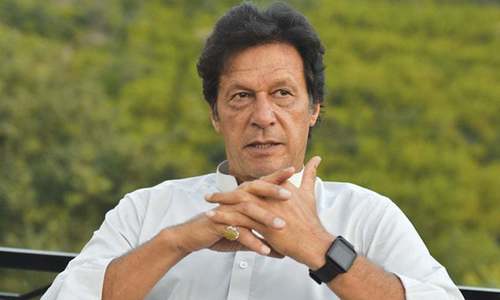WASHINGTON: “Kashmir is silent as a graveyard,” Vrinda Grover, an Indian human rights lawyer tells The New York Times, which published a 1,500-word report on Kashmir on Friday, along with pictures and videos depicting the situation in the occupied valley.
Pratap Bhanu Mehta, a public intellectual, tells the Economist magazine that the act of supposedly integrating the former state more fully into India has begun by casting the mostly Muslim inhabitants of the Kashmir valley “under a pall of suspicion”.
“Kashmiris’ first experience of Indian law as a union territory is of untrammeled executive power,” Mr Mehta adds.
In an open letter to Indian Prime Minister Narendra Modi, Salman Soz, a Kashmiri at the World Bank, rejects his claim that the move aimed at integrating the valley with the union to bringing prosperity and development to it.
“You may be surprised to know that Jammu and Kashmir is ahead of many states along a number of important development indicators,” he informs Mr Modi.
Mr Soz reminds the Indian leader that J&K’s poverty headcount ratio is only 8.1 percent against the national average of 21.9 percent, which places it among the five best performing states and Union Territories.
On Human Development Index J&K’s score in 2017 was 0.679, much above the national average of 0.639, Mr Soz adds.
A report in India’s Quartz news site points out that “after three weeks of lockdown Jammu & Kashmir remains in a state of shock.
“People have suddenly been transported to a pre-communication era,” Quartz journalist Riyaz Wani reports from Srinagar. “The air is rife with fear and rumour.”
Referring to unconfirmed reports of large-scale demonstrations in Srinagar, Mr. Wani adds: “There is now a sense of paranoia about what might be in store.”
On Thursday, the United Nations Human Rights Office said it was “gravely concerned” about the situation in the occupied valley.
The Economist points out that on Aug 5, the Modi government scrapped whatever constitutional autonomy the occupied territory had, ending its status as a state and divided it into two parts, both to be ruled from Delhi.
The NYT report says that right before and after the Aug 5 action, the BJP government carried out “one of the biggest mass arrests of civilian leaders in decades.”
Quoting local officials, NYT reports that at least 2,000 Kashmiris — including business leaders, human rights defenders, elected representatives, teachers, and students as young as 14 — were rounded up by in the days right before and right after the unconstitutional Indian action.
The detainees have not been able to communicate with their families or meet with lawyers. Their whereabouts remain unknown. Most were taken in the middle of the night, witnesses told NYT.
The report notes that even under India’s tough public safety laws this is illegal, and Mr. Modi “is bending the Indian legal system to cut off any possible criticism in Kashmir and go after anyone with a voice — be that a successful merchant, a politician or a professor.”
The report also notes that the Indian government isn’t revealing what charges the detainees face or how long they will be held.
“Some were reported to have been flown on secret air force flights to jails in Lucknow, Varanasi and Agra.’’
Political analysts told NYT that the mass roundup was the final piece of a step-by-step plan that Mr. Modi’s government set into motion last year.
“Bringing Kashmir to heel has been a Hindu-nationalist dream. It was India’s only Muslim-majority state and a place where Pakistan, India’s archrival, enjoys some support,” the report adds. “Kashmir was an obvious sore for the nationalist political movement that has flourished among India’s Hindu majority, powering Mr. Modi’s stunning rise.”
Published in Dawn, August 24th, 2019














































